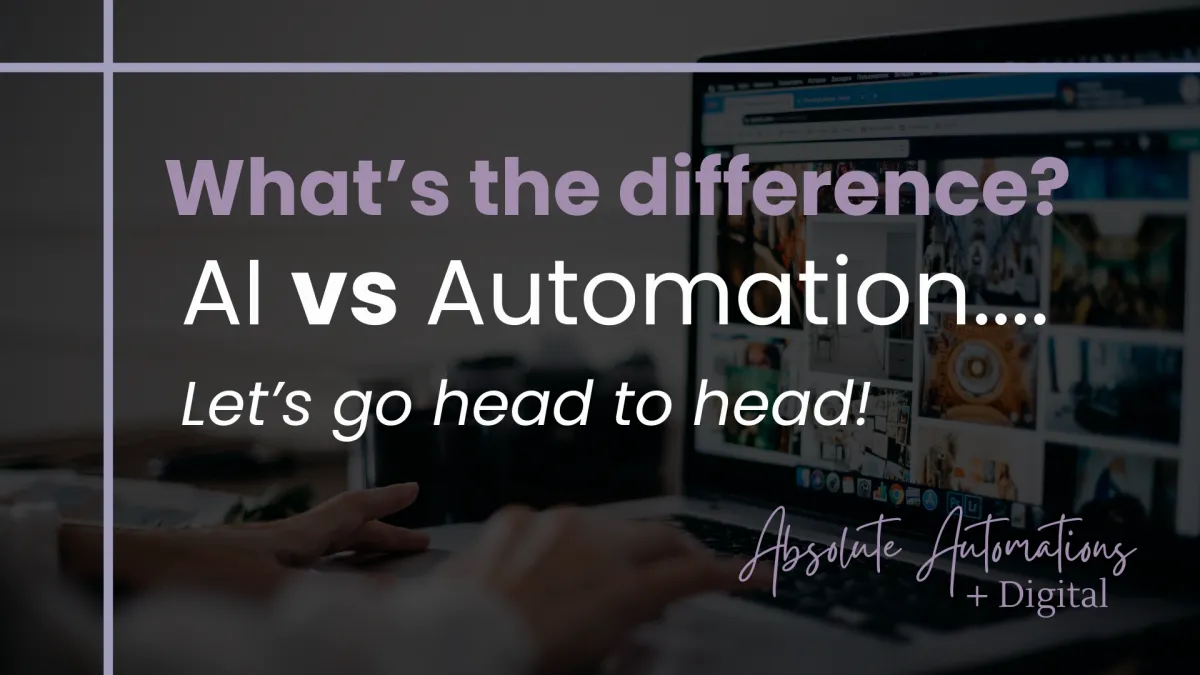
What’s The Difference: AI vs Automation
I bet you feel as confused as I did when I first heard the term ‘AI’….
“Do you mean like robots doing things for us?”
Well actually kind of…but more like the digital kind 🤓
But wait, what does the term Automation mean then…is that something to do with cars….??
Don’t worry, I get that look of confusion A LOT when I tell people what I do….not to mention trying to describe the differences between the two, and then getting all twisted and turned upside down in the process.
Well, the distinction between AI (Artificial Intelligence) and Automation can be easily described by their fundamental principles and individual capabilities.
Automation:
Automation refers to the use of technology to perform tasks without human intervention. It involves creating systems or processes that can execute predefined actions based on specific conditions. Automation aims to streamline and optimize repetitive or routine tasks, reducing the need for manual effort and increasing efficiency. Examples of automation include setting up scheduled tasks, workflow automation, and robotic process automation (RPA).
AI (Artificial Intelligence):
Artificial Intelligence, on the other hand, involves creating systems that can perform tasks that typically require human intelligence. AI systems are designed to learn from data, adapt to changing circumstances, and make decisions or predictions. Unlike automation, AI has the ability to analyze and understand data, learn from it, and improve its performance over time. Machine learning and deep learning are subsets of AI that focus on enabling systems to learn and make decisions from data.
The Key Differences:
Intelligence and Adaptability:
Automation: Follows pre-defined rules and instructions without learning or adapting.
AI: Has the ability to learn, adapt, and make decisions based on patterns and data.
Decision-Making:
Automation: Executes predefined actions without the capability to make decisions beyond its programming.
AI: Can make decisions, predictions, and recommendations based on analysis of data and patterns.
Flexibility:
Automation: Generally less flexible and may not handle unexpected situations well.
AI: More flexible and capable of handling novel or changing scenarios.
Learning:
Automation: Does not learn or improve on its own; tasks remain static unless reprogrammed.
AI: Can learn from data and experiences, improving its performance over time.
So while both AI and Automation involve the use of technology to perform tasks, AI goes beyond Automation by incorporating learning and decision-making capabilities, making it more adaptable to complex and dynamic situations.
Automation, on the other hand, focuses on executing predefined tasks efficiently and effectively to nurture, grow and scale your business.
So what’s the best of both worlds…?
Use BOTH!
Create tactical Automations to help do the heavy lifting….and then input the smarts of AI along the way to better enhance the process.
💥 BAM! 💥
I for one can’t wait to expand my knowledge in the very unique and hugely growing world of AI and Automations in 2024.
Come along and let’s do it together!